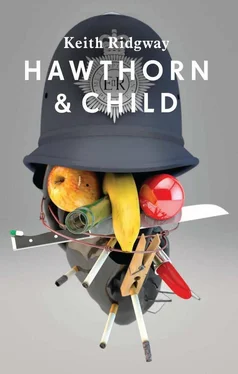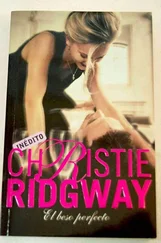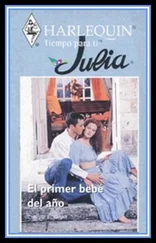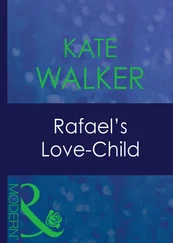He needed someone to talk to.
He went left again. He was making a circle. He went across the narrow bridge over the railway tracks. He screamed a woman with a pram out of his way. When he got to the other side he stopped. He ducked to the right and he drew the knife. Then he stepped out and faced back across the bridge. The policeman. No one else. The policeman, red-faced, distorted. He started to run. Towards him. Fast. His knife flashing in the dusk, catching yellow from the track lights. The policeman slowed, hesitated, stopped, turned, shouted something, ran back the way he had come.
— Don’t cross this fucking bridge. Hear me? Set foot on this fucking bridge I fucking kill you.
He stopped. He kicked the sides. He kicked the fucking sides. He walked backwards. He could hear the click and hiss of the radio. He could taste his own breathlessness rise in his throat. Say it. He swallowed.
— This bridge is mine. Mine, you hear me? Step on and I shoot.
He went back to the other side. He could see the policeman’s head peering at him. Just the head, set perpendicular, bobbing with his breathing like a ball on water. He stepped out of sight, waited, stepped back into sight. The policeman’s head withdrew, then re-emerged. His fringe. He did it again.
When Jesus was asked questions he didn’t answer. Yes. Rarely. He would stop, and carry the question inside, like a doctor with a sick child. Time would open up a new room, and he would consider, and refer to things that had happened and had not yet happened, and to things that had been said and written down. And he would stare out of the window of this new room to see what it overlooked, and to measure the weather there, and the geography of the land, the grasses and the plants there, the animals in the foreground small and rustling, in the distance large and bellowing, so that all animals seemed the same size and to make the same noise. And he would wait. And sometimes he slept, or found himself reading, and he would forget that an answer was awaited, or he would pretend that he had forgotten. Eventually, slowly, with his voice, he would come out of the room with a healthy child. And he would provide his audience with something that was not an answer, but was instead a reflection and expansion of the question, a puzzle, something they could wander in and feel a sense of where he had been, and of what there was just out of their sight but within their reach.
He fumbled in his pockets. In full view. Patting his pockets. He pulled out a box of cigarettes, lit one. Dropped out of sight again. As if he was just pacing. To and fro. Came back. The policeman’s head was all he could see. Respecting his wishes. He did it again. Out of sight. A different pause. Back in sight.
Then he went out of sight, threw away the cigarette and ran, faster than before, up the old path towards Highgate, by the backs of people’s houses.
He was by instinct cruel.
He sat one afternoon in a café in a covered market. By the window, looking out at the stalls. Where was his wife? Cruising the knick-knack tables, examining the junk like diamonds, haggling with smelly little men over two quid off a matching choirboy and choirgirl, or a dog wearing a hat, or Churchill clutching his lapel. The high roof of the place let the cold air circulate and nothing heated it, and it felt like outdoors but it was covered and dry and the rain was kept out and he didn’t give a shit about his wife any more. He didn’t. He half hated her. He looked up from his soup and saw a woman looking in, wondering about a coffee maybe, a quick sandwich, a treat. Nice woman. She held an open umbrella over her head. He stared at her. And his eyes glanced up at the roof, and she saw him, and realized what she was doing, and laughed. She laughed, shook her head, what am I like? and lowered the umbrella. He could have smiled. He could have smiled and shook his head back at her — what are you like? or smiled and shrugged — what are we all like, sometimes, sister? or laughed aloud, kindly. Any of these things would be like a touch. A simple human touch. But he did none of these things. He stared at her. He stared and moved his hand slowly between the plate and his mouth. He stared and closed his face, and made himself as a wall, and he said aloud the words dumb bitch, and her smile faltered and broke on the stones and she hesitated and was ashamed and she turned and walked away. And when she was gone he smiled. And he tried to tell himself that he had no access to time, and that his smile had simply come too late, that he was awkward and troubled and it wasn’t his fault, that he was socially disadvantaged and that he was alienated from the community of ordinary people, and that it wasn’t his fault.
But the truth was cruelty.
He needed someone to talk to.
Between the houses and the roofs the sky was black and purple, and past its edge was an egg yolk strip of the last of the sun, but at his feet there was darkness and around his body gloom, and nothing bright. The bushes came and went. There were some walkers. Things like that. He shouted. He looked into the gardens.
She would be on her second Coca-Cola. She said the sugar-free wouldn’t hurt her. She would be watching Millionaire and wondering where he was.
There were windows lit. He saw a family in front of a television. He saw a couple cooking in a kitchen. Sirens behind him. Somewhere. He glimpsed lights. More sirens further away. He left the path, moved to his right, through grass and then a tangle of bushes and small trees down the embankment. He stumbled on a sharp decline, let himself slide on his arse and was poked in the face by a branch. He had to rip his way through the thickest of it, and came eventually to a wooden fence, the top coiled with wire. He turned and kicked at the middle with his right foot like a horse. It gave on the fifth. He turned again and made the hole usable and peered through it. A long garden. A kids’ swing and slide set, cheap. A light in an upstairs window. Downstairs nothing, but the doors to the living room were glass. He climbed through the fence and sprinted towards them. Something moved in the window, upstairs. He swerved. He jumped the little flowerpots to the patio. He glimpsed a cartoon face on the floor — a T-shirt or a toy or something, staring at him. He got to the doors. Locked. He turned and kicked once and a panel shattered neatly. He squeezed through sideways and cut his stomach. Why hadn’t he reached through and opened it? Why was he so stupid? He walked fast. He needed to get out of the room. He tripped on a low table and nearly fell. There were feet on the stairs, running. He found a door, opened it. A hallway. Light. There was a boy at the front door, leaving, struggling with the locks. He was about fifteen. Long hair.
— Stop. Wait. Please.
The boy looked back.
— Fuck.
He looked scared. Childish scared. His face wrinkled by bad-dream fear.
— No, please, wait.
The boy opened the front door and ran out. He ran on to the road. T-shirt, long shorts, trainers. Then he stopped dead. In the middle of the road. And turned around.
— Come back. I won’t hurt you. I can tell you things. We can talk. I have things no one else knows. No one at all. Ever. Come back.
The boy stepped further away. He looked like he might be crying. What was wrong with him?
— Come on, man. I will not hurt you.
The boy walked backwards, staring at him, until he bumped into a parked car. He ran around it, got it between them, put his hands on the roof. Circumauto.
— I want to have a conversation with you. That’s all. Tell you some things. Then it’s over. I promise. I promise you.
There was a siren. To his left. A squad car turned the corner. It braked a couple of houses away from him. A light came on and shone in his face. Nothing happened. He looked for the boy. He was gone. More sirens. Another car, unmarked. The sky was dark. There was nothing left on it.
Читать дальше












